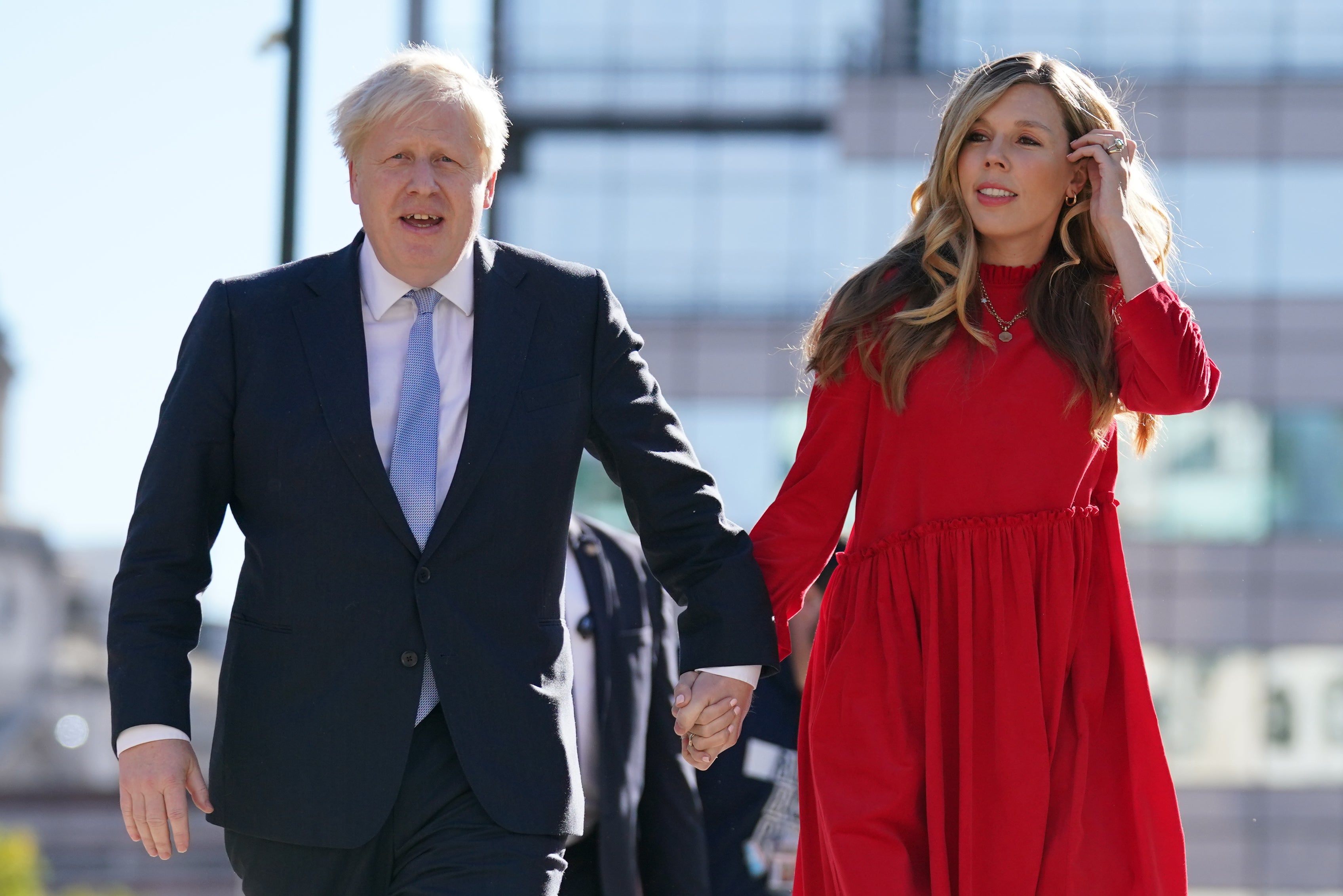Partygate: What laws did Boris Johnson break?
A reminder of the rules in place at the height of lockdown, a moment in which we now know the PM attended a party at Downing Street while the electorate pulled together to keep each other safe
Your support helps us to tell the story
From reproductive rights to climate change to Big Tech, The Independent is on the ground when the story is developing. Whether it's investigating the financials of Elon Musk's pro-Trump PAC or producing our latest documentary, 'The A Word', which shines a light on the American women fighting for reproductive rights, we know how important it is to parse out the facts from the messaging.
At such a critical moment in US history, we need reporters on the ground. Your donation allows us to keep sending journalists to speak to both sides of the story.
The Independent is trusted by Americans across the entire political spectrum. And unlike many other quality news outlets, we choose not to lock Americans out of our reporting and analysis with paywalls. We believe quality journalism should be available to everyone, paid for by those who can afford it.
Your support makes all the difference.The Metropolitan Police has announced that it has completed its investigation into the Downing Street “Partygate” scandal over rule-breaking during the Covid-19 lockdown, handing out 126 fines in total over eight events held behind closed doors in Westminster.
Boris Johnson, his chancellor Rishi Sunak and his wife Carrie Johnson were among one tranche of government staff members handed fixed penalty notice fines for breaking their own rules to stage parties during the pandemic but received no further fines before the probe concluded.
Both the prime minister and Mr Sunak have apologised and paid their fines, with Mr Johnson saying: “In all frankness at that time it did not occur to me that this might have been a breach of the rules. Of course, the police have found otherwise and I fully respect the outcome of their investigation.”
He said he understood “the anger that many will feel that I myself fell short when it came to observing the very rules which the government I lead had introduced to protect the public”.
Mr Johnson has repeatedly brushed off calls for his resignation, saying: “I believe it’s my job to get on and deliver for the people of this country. That’s what I’m going to do.”
However, as the first serving PM to be found to have broken the law, he has already come under intense pressure to resign from Labour leader Sir Keir Starmer, Liberal Democrat leader Sir Ed Davey, from his own Tory backbenchers and from campaign groups like Covid-19 Bereaved Families for Justice.
To understand the strength of feeling about Mr Johnson’s trangression, it is instructive to look back at the early days of the first coronavirus lockdown in spring 2020 to remind ourselves how strict the rules in place were at the time.
On 20 May 2020, for instance, the day the PM’s principal private secretary Martin Reynolds arranged a lockdown-busting drinks gathering in the garden at No 10 – according to a leaked email – England was under extremely tough restrictions.
Mr Reynolds sent an email to more than 100 Downing Street employees asking them to “bring your own booze” to an evening event, ITV reported, in defiance of the fact that such gatherings were forbidden at the time, even outside.
The PM had imposed England’s first lockdown to combat the coronavirus in March 2020 and, although the government’s “stay at home” guidance was relaxed on 13 May 2020, strict curbs on socialising remained.
People in England were allowed to meet only one person from another household, providing they were at least two metres apart and outside.
Citizens were not permitted to visit the homes of friends and family – unless it was for care and medical reasons, or to take a child to another household with whom parental responsibilities were shared.
It was not until 1 June that groups of up to six people were allowed to meet outdoors.
But the No 10 gathering, nearly two weeks earlier, is said to have been attended by 30-40 people – including the PM and his wife, Carrie Johnson – after Mr Reynolds urged invitees to “make the most of the lovely weather”.
The balmy temperatures that week raised concerns that people would flock to beaches and defy social distancing, prompting councils with responsibility for beauty spots – such Brighton & Hove, Hastings and Cornwall – to warn the public to stay away.
Police forces in England and Wales issued 14,244 fines for breaches of lockdown laws between 27 March and 11 May, according to figures from the National Police Chiefs’ Council.
Officers were forced to break up gatherings and protests, including a demonstration against the lockdown in Hyde Park on 16 May.
About 50 people breached social distancing rules and dozens of police officers patrolled the protest, making 19 arrests – including Piers Corbyn, the brother of former Labour leader Jeremy Corbyn – and issuing on-the-spot fines.
Officers dispersed a 100-strong street party in Handsworth, Birmingham, on 22 May, telling the crowd that such gatherings were in breach of the government’s orders.

That same day, news emerged the prime minister’s then-aide Dominic Cummings had made a 260-mile trip to Barnard Castle near Durham with his wife and child, breaching lockdown rules at the height of the Covid outbreak.
The story sparked a furore and accusations of hypocrisy.
Around the same time, civil liberties groups and lawyers called for a review of more than 14,000 fines for alleged breaches of lockdown rules after police chiefs and prosecutors admitted that dozens of people had been wrongly charged under the laws.
On the day of the No 10 gathering, government figures showed that 35,704 people had died after testing positive for Covid in the UK, up by 363 from the day before.




